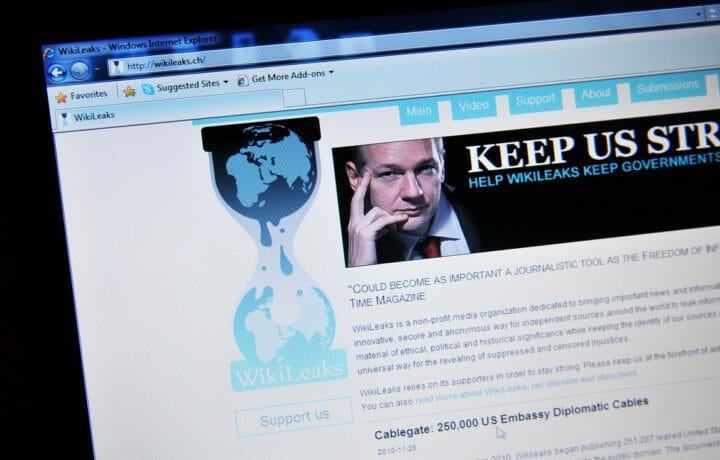On June 24, Julian Assange walked out of Belmarsh prison in the UK, boarded a private charter flight (VistaJet 199) and headed to Saipan. On the morning of June 26, he pleaded guilty at the U.S. District Court for the Northern Mariana Islands to conspiring with Chelsea Manning, a U.S. Army intelligence analyst, to unlawfully obtain and disclose classified national defense documents. He was then sentenced to 62-months time served, the amount of time he spent in the United Kingdom prison because of the charges brought by the United States. Following the sentencing, he departed the United States (Saipan) and flew on to Canberra, Australia, his country of citizenship. Assange may not return to the United States without prior permission from the United States government.
Assange folk hero or criminal
To some, he is a folk hero, and to others, he unsavory and his actions ignoble.
Wikileaks released of hundreds of thousands of U.S. classified and sensitive documents. In 2019, an 18-counter superseding indictment was brought forward by the DOJ. All but one of these were dropped, save for the conspiracy count.
It is important to remember how Assange was actively urging individuals to provide U.S. classified information to his Wikileaks and his relationship with “Guccifer 2.0” and by extension the Russian Federation. In addition, he publicly called for individuals to join the CIA, collect secrets and bring them to Wikileaks.
Each of the 18 counts carried a maximum penalty of 10 years, except for the computer intrusion charge, which carried a maximum of five years.
In addition, in 2010, he was charged with rape in Sweden. The Swedish prosecutor’s office dropped those charges in 2019, noting, “Nine years have gone, time is a player in this. The oral evidence has weakened as time has passed. The victim submitted credible and reliable version of events.” She continued, “the memory fades for natural reasons.”
Chelsea Manning
Manning, an intelligence analyst within the U.S. Army, answered Assange’s public call on Wikileaks’ “Most Wanted Leaks” for U.S. intelligence information. When it was said and done, Manning had provided to Assange, per the DOJ, “90,000 Afghanistan war-related significant activity reports, 400,000 Iraq war-related significant activities report, 800 Guantanamo Bay detainee assessment briefs, and 250,000 U.S. Department of State cables.” In addition, the two worked together to attempt to penetrate the Secret Internet Protocol Network (SIPRNet).
Manning was found guilty by a U.S. military court and in August 2013 was sentenced to 35 years in prison. President Obama, in January 2017, commuted the sentence to all but four months, allowing her to be released in May 2017. In a statement at that time, President Obama noted that “the sentence that she received was very disproportionate relative to what other leakers had received and that she had served a significant amount of time, that it made sense to commute and not pardon her sentence. … I feel very comfortable that justice has been served.”
Assange’s sentence a deterrent?
Assange eschewed commercial travel (a business class ticket from London to Saipan, onward to Canberra would cost approximately $20,000), instead he opted to go luxury class and chartered a private jet. This flight wasn’t cheap, as Stella Assange shares, “It’s Australian policy that he will have to pay his own return flight so he’s had to charter a flight and so he will basically be in debt when he lands in Canberra. We’re going to launch an emergency fund to try to get this money so that we can pay the Australian government back for his freedom flight. It’s half a million U.S. dollars.” As of this writing, 70% of the target goal has been pledged.
Does this sentence serve as adequate punishment for the guilty Assange? For those looking at it from an arithmetic perspective, the amount of time served in the U.K. is greater than that served by Manning in the U.S.
Does the sentence act as a deterrent to others? Whether adequate or not will continue to be debated, long after Assange’s notoriety fades into the dust within the hourglass of time.



